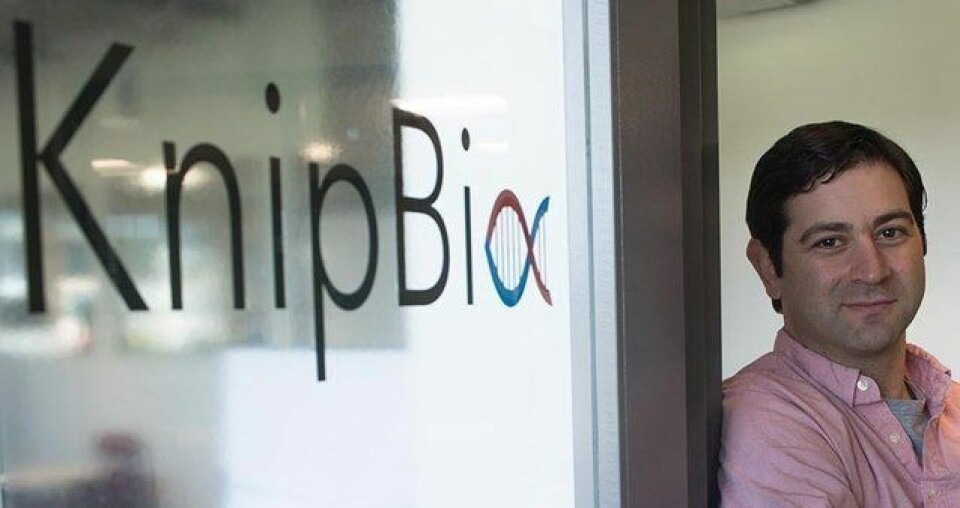
New raw material 'may be game changer in aquafeed'
Feed ingredient developer KnipBio today announced a breakthrough in its fermentation research that enables the company to produce its single cell protein aquafeed ingredient, KnipBio Meal (KBM), from condensed distillers’ solubles (CDS).
In a press release, the Massachusetts-based company said the development promised a dramatic reduction in cost and demonstrated the versatility of KnipBio’s biotech platform and fermentation technology and would allow it to shift from laboratory research to commercialisation.
KnipBio chief executive Larry Feinberg said: “CDS is a residual by-product of ethanol fermentation which until now has had limited economic value.
Competitively priced
“Using CDS dramatically reduces our feedstock costs, allowing KnipBio Meal to be competitively priced with traditional aquafeed proteins. CDS is cheap, there’s a lot of it, and because it is a waste stream, it is inherently sustainable with virtually no environmental footprint.
“Importantly, the composition analysis indicates KBM derived from CDS has a protein content equal or greater than fishmeal and contains none of the anti-nutritional factors often found in plant proteins. This makes it a potential game changer for the aquaculture industry, which will now have access to an affordable, sustainable, and traceable alternative to fishmeal and soybean meal. With this product we are helping to expand the industry by diversifying the basket of proteins that can be used in aquafeeds.”
Ethanol by-product
Feinberg added: “The economics of producing KnipBio Meal from CDS are truly compelling. The global biofuels industry produces more than 2.5 million tons of CDS each year as a by-product of ethanol fermentation. This CDS sells for about $100 per ton and is typically sprayed on animal feed. When the same CDS is upcycled to produce KnipBio Meal, the resulting single cell proteins sells for significantly more.”
KnipBio began the development of its patented, single cell fermentation process using methanol in 2013.
To reduce input costs and increase feedstock flexibility, it initiated a research program in 2018 to produce protein using low-cost feedstocks including CDS and other biofuel waste stream products. Feedstock flexibility ensures supply security and price stability. It also makes KBM more sustainable and allows a KBM fermentation plant to be co-located wherever industrial agriculture and food processing is done.
Scale-up work
Feinberg stated: “Today’s announcement is the first result from our feedstock diversification efforts. Now that we have succeeded in upcycling CDS, we are shifting from laboratory research to commercialisation and scale-up work has already begun.
“Additionally, results from initial animal feed tests indicate KnipBio Meal is an excellent protein source for both fish and crustaceans. While I expect continued challenges as we progress, we are confident we will achieve our goals.”






















































